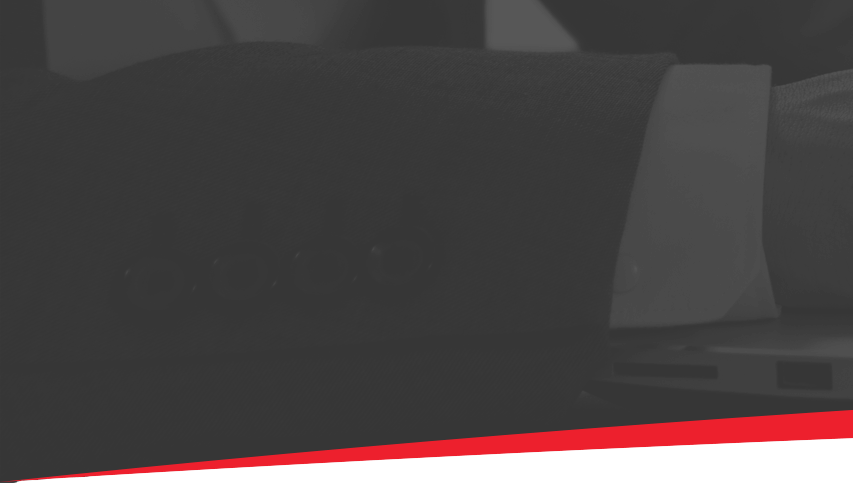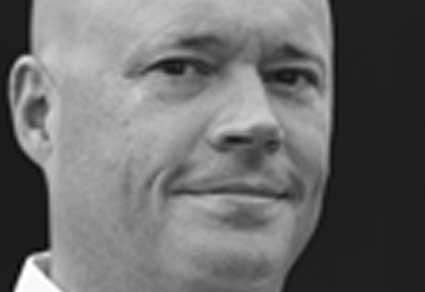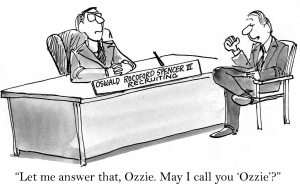In my 25 years as an executive recruiter, I’ve witnessed interviews go wrong for a number of reasons. Some of the most frequent and unfortunate reasons pertain to silly, stupid misunderstandings due to poor communication by one or both parties, or by either party just not paying close enough attention to what is being said.
By John Boehmer, Managing Director Accelent, Inc
INTERVIEWER
What can the interviewer do? Ask questions in a clear and concise manner. Be certain you know exactly the information you are trying to acquire and then craft a very clear question.
CANDIDATE
What can the candidate do? If you ever get a question you don’t understand perfectly, ask to clarify. Say: “To be perfectly clear, are you asking me ‘X’ or are you asking me ‘Y’ or something else entirely?” Otherwise, candidates will often make an assumption about what they think the interviewer is looking for and run down a rabbit hole.
As a candidate, you must understand that the interview is an imperfect process, to say the least, and that you must focus on ensuring that the interviewer is receiving all the data that he or she requires to make an informed decision. That’s a tough ask, given most interviews are all of 60 minutes.
I believe one of the best ways candidates can accomplish this is to “check-in”. By check-in I mean, as you are answering a question, occasionally pause and ask, “Does that make sense?” Or, “Is that what you were looking for?”
This accomplishes four important things. First, it engages the interviewer, which they always appreciate. Second, it demonstrates a level of self awareness. Third, it will keep you from committing one of the most common mistakes candidates make in interviews: talking too much. And, lastly, it allows the interviewer to provide you with what I call “mini-feedback.” This is especially helpful in a phone interview or when you are being interviewed by an especially stoic interviewer.
Mini-feedback can come in the form of one of a few statements that will sound something like these: “That was what I was looking for, thank you, let’s move on” or “That’s what I was looking for but, could you provide me a bit more detail about X” or “No, that’s not what I was looking for. I was looking for Y”. If you have checked in early enough in your answer, you will not have run too far down the rabbit hole and you can now back out and redirect.
One of the quickest ways to shoot yourself in the foot, as a candidate interviewing for an executive position, is not being efficient in your answers. It’s important to understand that you must be prepared to quickly and effectively articulate relevant information about your experience and knowledge. Being verbose will only get you in trouble.
To be efficient, you must periodically spend time reflecting on everything of significance you’ve worked on and accomplished over the years. Much of an interview is simply memory recall, and you’re not going to quickly recall the right information if you haven’t spent some time thinking about it.
Sit down in front of your resume and make notes for each one of your roles about the details of your accomplishments. Memorize them. Try to put them in the context of a story which keeps things interesting.
If the interviewer asks you a question you believe is likely to lead to an extended answer, such as, tell me about yourself (UGH!), ask for permission to provide an outline or a “Reader’s Digest version first.” Next, ask the interviewer to let you know where she would like greater detail and that you would be happy to elaborate. If your answers run on for several minutes at a time, you’re in danger of appearing as if you are unable to communicate efficiently and effectively. And as a reminder, be sure to check in.
God knows we all love to talk about ourselves, but we must keep it brief, to the point, and give the interviewer an opportunity to lead us down the particular path they want to follow. Don’t try to take control of the interview. Instead provide the interviewer the opportunity to guide you. Remember, your goal is to do everything you can to provide the interviewer with all the information they need to make an informed decision about your candidacy.
INTERVIEWER
Interviewers, be sure to prepare for the interview. Don’t wing it. Ideally, you will have coordinated with your fellow interviewers and split the list of competencies that you have chosen for this role so that each interviewer has their own set of competencies to assess. Next, create a list of interview questions. Ask your internal recruiting department and/or your external recruiter for some ideas, and pick out the best questions for assessing those competencies.
Once you have your set of competencies, as much fun as it is not, I strongly suggest carefully reading the candidate’s resume word-for-word starting from the end. By paying close attention to the resume in this way, you’ll get a sense for the person’s career story. Also, note any gaps in the dates. Reviewing the resume in this way will also give you a sense for their communication skills and enable you to devise additional key questions for the candidate.
Regarding note taking, my advice is to audio record the conversation (don’t forget to ask for permission). You will avoid being distracted by note taking and can focus on the candidate. It will also give you something to refer back to in case you believe you may have missed something and for general review.
I strongly advise NOT to make a hire/no hire decision until you get in a room with the other interviewers and share your findings. The more data you have, the better data the team has, the better the outcome.
CANDIDATE
You’re going to have a lot of questions, but you’re not going to get them all answered in the first round of interviews. My advice, as wonky as it sounds, is to write them down and be sure to prioritize them. Decide which questions are the most critical and that you feel you must have answers to before moving on to the next steps. It will also help you maintain your energy and interest throughout the interview.
As you are nearing the end of the interview, be sure to ask the interviewer whether or not they have any concerns about your candidacy for the role. This sounds like a closing question, and to some extent it is. However, what it is really meant to do is uncover any potential misunderstandings.
Key Tips From My Experience
What I have seen is that occasionally interviewers, for whatever reason, miss something about your experience. And so you will likely be given one of two responses. Either, “No, I have no concerns at this time”. At which point you should ask about next steps. Or, you may be told, “You seem like a wonderful candidate, however, you don’t seem to have any experience in X.” Whatever X is. If you don’t have X, don’t try and spin it, but you might ask how important it is. If, however, you do have X, be sure to say something like, “My apologies, however, I do have X, may I tell you about it”?
This way you deal with the misunderstanding before it causes the interviewer to make a decision about your candidacy without all the facts.
If you are working with a recruiter, be sure to call them immediately following the interview so that they may debrief you while it is fresh in your mind. That information is critical to helping the recruiter understand where the issues are on both sides so they can help guide the remainder of the process – keep an eye out for future posts, where I will talk more on why that is critical.
A few last pieces of advice to candidates:
- Toot your horn – There is nothing wrong with letting people know what you have accomplished;
- Deliver your answers with specific data when you can – The more quantitative the better;
- Do not talk in high level generalities—That’s not what interviewers are looking for;
- Be sure to make connections between your accomplishments and the needs of the role;
- And, finally, remember, you’re often evaluated just as much for the quality of your questions as for your answers – Bring some intelligent, penetrating questions.














